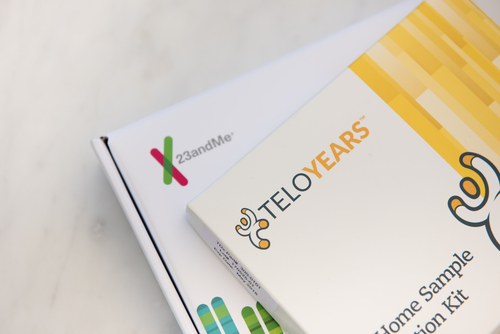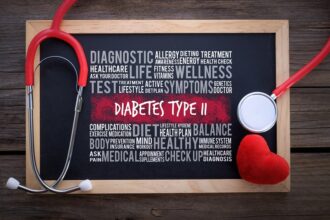You can find out a lot about yourself by taking a direct-to-consumer genetic test, but are the risks worth the potential rewards?
A growing number of consumers are turning to private genetic testing services for various reasons. Analysts forecast that revenue generated by the direct-to-consumer (DTC) genetic testing industry will surpass $22 billion by 2024.
Genetic testing enables the early detection of cancer and genetically inherited diseases. However, the procedure also has its drawbacks.
Gene Testing for Breast Health
In 2015, physicians diagnosed nearly 125 out of every 100,000 women with breast cancer. Some women choose to take proactive steps for breast health management by seeking genetic screening that may determine whether they’re genetically predisposed to contract the disease.
Scientists use genetic testing to screen for cancer genes such as BRCA1, BRCA2 or PALB2. If one of your family members has a cancer gene, you should consult with your physician to assess your risk of contracting cancer.
For women, routine screening for breast cancer is always important. For ovarian cancer, however, physicians have yet to come to a consensus on screening guidelines.
If you test positive for a cancer gene, you can lower your risk with early detection if you were ever to develop cancer. Some consumers choose to take proactive measures when genetic testing reveals the cancer gene.
With women, for instance, a physician may recommend hormonal therapy to reduce the risk of contracting breast cancer, or oral contraceptives to reduce the chance of contracting ovarian cancer. Some women opt for surgical removal of one or both of their breasts as a preventative measure.
If at some point you develop cancer, a physician can use genetic test results to inform intervention planning. Also, the results of your genetic testing could contribute to research or clinical studies to help future cancer patients.
What’s Driving the DTC Genetics Testing Industry?
Cancer screening is one of the most profitable verticals of the genetic testing industry. Analysts estimate that genetic cancer screening generated over $5.5 billion in 2017.
The primary drivers of the genetic cancer screening vertical are increased diagnoses of breast, lung, ovarian and prostate cancer as well as increased awareness that early cancer detection results in better patient outcomes.
Although researchers have developed better cancer treatments, cancer deaths persist. Among nearly 9 million total cancer deaths, researchers accredit 10% of cancer diagnoses to genetic inheritance.
Genetic testing researchers have also made progress in diagnosing cardiovascular diseases, identifying health risks and analyzing patient response to treatment plans. Analysts also forecast that this kind of diagnostic testing also generates approximately $5.5 billion a year.
Also, a growing number of genetic disorders among newborns is compelling parents to opt for testing. Analysts forecast that newborn genetic testing will increase more than 10% every year through 2024.
Medicine vs. Morality
In the business world, the pursuit of profit often supersedes ethics. The genetic testing industry is no exception.
A recent survey reveals that 86% of consumers want to know if a company collects and stores their personal information. Nevertheless, there’s no shortage of media stories highlighting how companies trade in consumer data without consent.
It’s human nature to want to know more about one’s self. In 2017, for instance, more consumers purchased a genetic ancestry test than all previous years combined. However, a significant number of those consumers may not have considered what happens to their DNA sample and the resulting data.
Relatively recently, companies such as 23andMe have spent millions of dollars on marketing and advertising. Over 12 million consumers have purchased direct-to-consumer genetic testing.
What many people fail to realize, however, is that genetic testing companies are free to trade the anonymized sensitive information of millions of their customers. With enough data, computer scientists can reconstruct anonymized information to identify patients.
A cyberattack that affects consumer finances is damaging. However, the theft of medical information can prove vastly more injurious.
Proceed With Caution: The Cost of Knowing
A recent study reveals that 38% of consumers who purchased genetic testing didn’t think about what would happen if they found out something that they didn’t want to know.
For example, it’s possible that genetic testing could reveal information about a family member’s secret relationship to the test subject. Alternatively, testing could reveal that a brother or sister is only a half-sibling. What starts as a fun exploration, can lead to familial discord and possibly even divorce.
Also, studies show that six months after genetic screening consumers who purchase testing aren’t likely to change their health habits. Before a diagnosis of cancer, the only thing that a consumer can do is eat better, exercise and take care of themselves. These habits are advisable for anyone, so is genetic testing necessary in this regard?
In 2008, Congress recognized the sensitivity of genetic data. Legislators passed a law to protect consumers against discrimination based on genetic information.
Now, employers and health insurers cannot use genetic information for decision-making. However, the law does not cover life insurance, disability insurance or long-term care insurance.
There’s a real risk that your genetic information could affect the decision of a future insurer. Also, the law does not protect federal employees or military personnel who seek services from the Veterans Administration.
Finally, you must consider how the testing facilities will handle your genetic material and test results. As a consumer, you must read and understand a genetic testing company’s privacy policy.
Genetic testing companies aren’t required to comply with HIPAA regulations. As a result, researchers can hypothetically use the information that you submit for genetic testing to reconstruct your identity.
Conclusion
Most often, genetic testing doesn’t result in these adverse outcomes, but they can happen. Only you can decide whether genetic testing is worth the risks.










